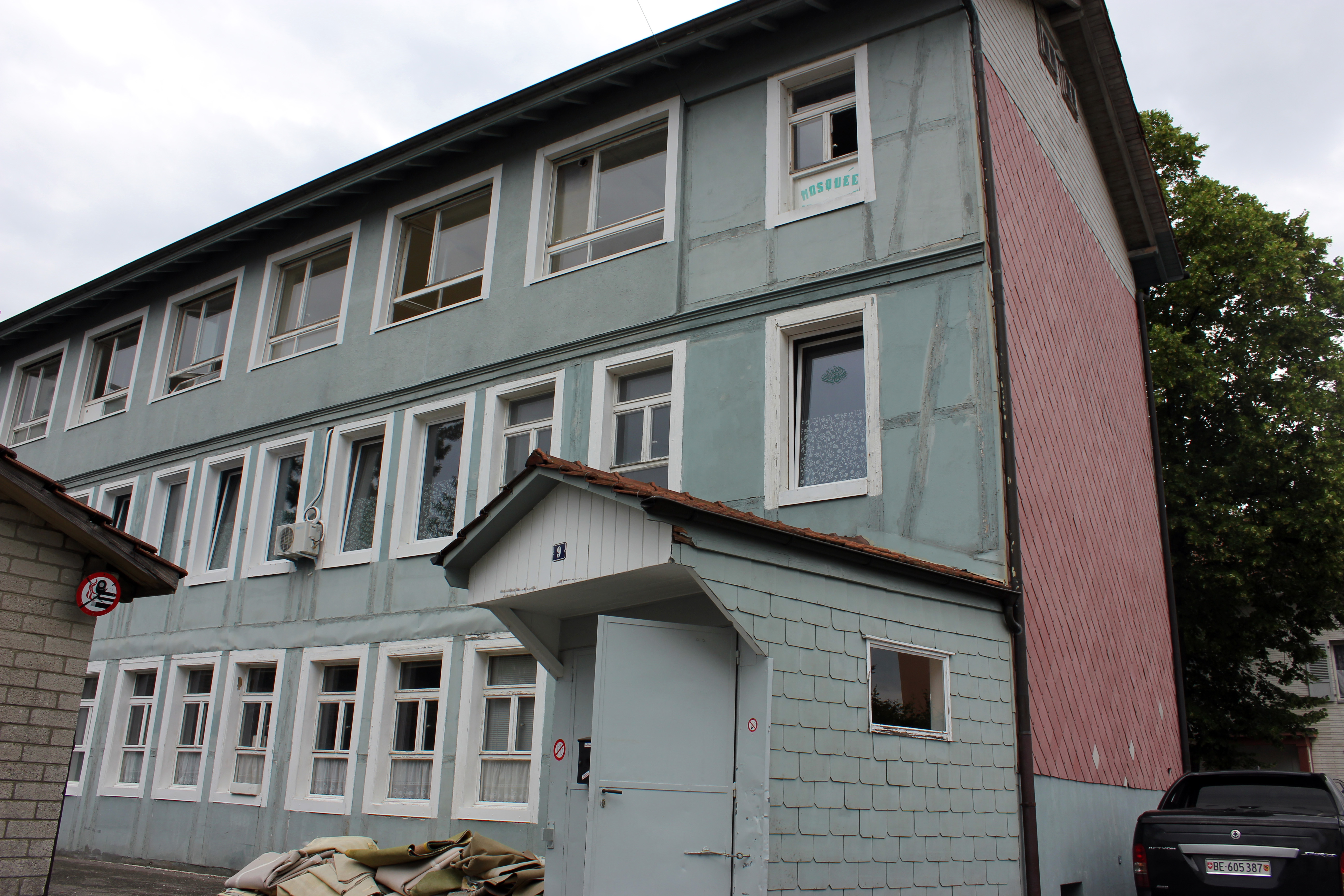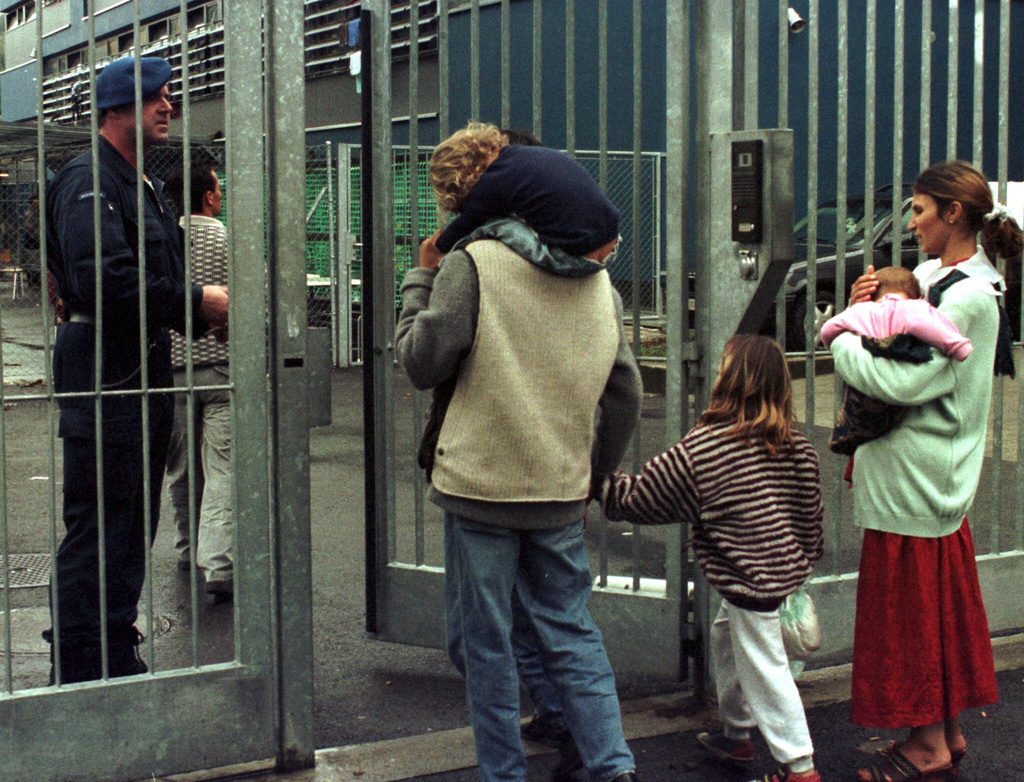New Islamic training centre aims to build bridges

The first modules of a training course for imams in Switzerland may begin in the autumn at the University of Fribourg, eventually making it possible for locally trained Islamic prayer leaders to join the ranks of the country’s 150 imams, all of whom trained abroad.
“The project is now moving into its operational phase,” Antonio Loprieno, rector of the University of Basel, who has chaired the working group for the course for the past two years, told swissinfo.ch.
The new inter-faculty Islamic training centre will provide courses for imams on Swiss culture and society context, courses for social services, courses for health professionals on accommodating the Muslim community and, ultimately, a training programme for new imams.
Despite fears expressed by some opponents to the new Islamic training centre, a conference held in Fribourg in March moved the planning process forward.
“I am happy to confirm that a major step has been made,” Hicham Maizar, of the Federation of Islamic Organisations in Switzerland and current president of the Swiss Council of Religions, told swissinfo.ch.
“Muslims have lived in Switzerland for 50 years. We should therefore build bridges between them, society and the authorities. From the beginning, we have staked a lot on dialogue, which will be encouraged by the centre, as a way of demonstrating that one can be both Swiss and Muslim,” he added.
Guido Vergauwen, rector of the University of Fribourg, which will house the centre, would like to see the first modules available in autumn 2014. The full course should begin from spring 2015.
The director of public education in Fribourg, Jean-Pierre Siggen, is also satisfied with developments, noting that the cantonal government, in giving its support to the centre, wishes to encourage inter-faith dialogue. In his view, “the university offers the ideal framework for this”.
A joint cantonal and governmental report published in 2013 found that most Muslims in Switzerland were well-integrated and didn’t generally experience problems related to their religious faith in everyday life.
Switzerland’s 350,000-400,000 Muslims don’t belong to a single faith community; instead, they tend to be divided along ethnic and linguistic lines.
Religion isn’t the most important identifying factor for many of them. According to the report, only 12-15% actively practise the faith by regularly visiting a mosque, and Muslims from the Balkan region in particular see the religion as a tradition rather than a strict belief system.
An initiative banning the building of minarets was voted into law on November 29, 2009, and triggered a debate in Switzerland and abroad about the acceptance of Muslims in the country.
Fears of Islamism
Despite these assurances, some voices have raised objections to the centre. Among them, local parliamentarians from the rightwing Swiss People’s Party and the centre-left Christian Democrats who asked the local government to intervene to get the university to abandon the project.
“We don’t know what is going to be taught at the centre. Islamist influences could exploit it,” said Roland Mesot, president of the Fribourg branch of the People’s Party.
Loprieno does not share this worry. “It is unlikely that Islamism would get a foothold at the heart of a university with such a great liberal tradition. On the contrary, a centre like this could lead to an Islamic discussion in accord with our own values,” he said.
The original idea for this project came from a national research programme, “Religious groups, state and society”, carried out in 2009. It found that most of the imams and teachers of Islam did not speak Swiss national languages and did not know Swiss society, culture and laws.
More than 150 imams officiate in Swiss mosques. They come from the Balkans, Turkey, North Africa and the Middle East. There is a need for Swiss-based training, according to Vergauwan, who wants to build bridges between the Muslim minority and Swiss society.

More
Building religious spaces is complicated
Diverging opinions
Project leader Hans-Jörg Schmidt sees things differently. According to him, the expression “Islam and society” does not really reflect the content of the training course.
“Islam does not exist on the margins of society. It is part of it,” he said.
The working group charged with developing the training programme comprises universities, imams and representatives of civil society. At the conference in March, divergences between the three categories were apparent.
For imams and Islamic organisations, the importance of this training lies in the fact that “Islam in Switzerland has become a challenge for the state and society, and secular life a challenge for Muslims”, Maizar explained.
The goal of the centre is therefore to find a way of living together that protects the interests of both. According to Maizar, the training should be available to imams, but also teachers in state schools and social workers in hospitals, prisons and retirement homes.
Encourage debate
For the university representatives, the important thing is to create a new course in Swiss universities, which differentiates itself from both the German experience based on study of the Koran, ethics and Sharia law, and the traditional Islamic university tradition, limited in critical thinking.
“The centre should encourage an Islamic debate which would not be locked into a system,” Reinhard Schulze, professor at the Institute of Islamic Studies in Bern, told swissinfo.ch.
As for the representatives of civil society, some, such as Rifa’at Lenzin, member of the Federal Commission against Racism, and Bashkim Ihsani, researcher at the University of Lausanne, also want the centre to encourage an open Islam which favours critical thought.
According to Ihsani, the centre should also focus on the themes of immigration and integration of Muslims. Likewise it should reflect “the cultural and linguistic diversity of Muslims in Switzerland”.
Several key unanswered questions remain. Who will pay for the course?
What professional avenues are open to the imams – or others – who benefit from the training? A third conference may be required to deal with these matters, as some have suggested.
(Translated by Clare O’Dea)

In compliance with the JTI standards
More: SWI swissinfo.ch certified by the Journalism Trust Initiative











You can find an overview of ongoing debates with our journalists here . Please join us!
If you want to start a conversation about a topic raised in this article or want to report factual errors, email us at english@swissinfo.ch.